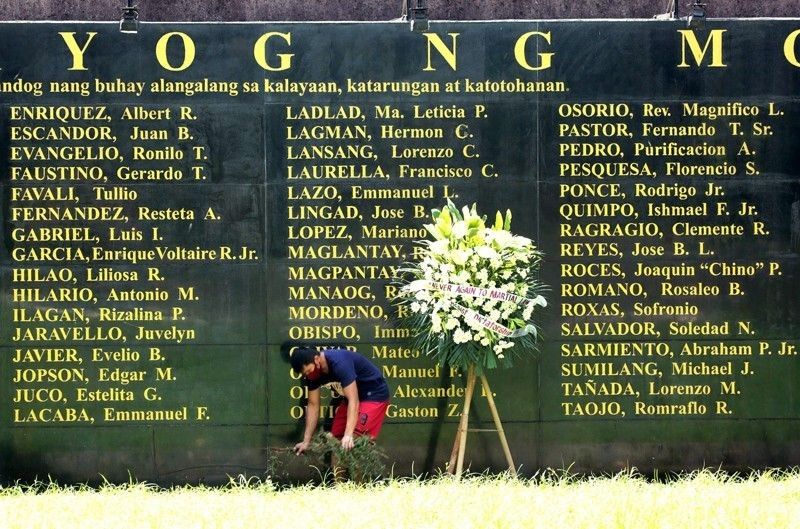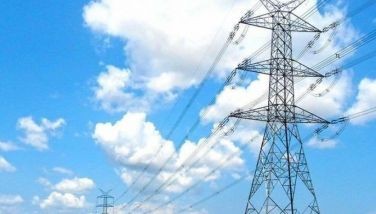House bill seeks reconstitution of claims board for Martial Law victims

MANILA, Philippines — A bill seeking to continue the processing of reparation claims over human rights violation victims under the bloody dictatorship of Ferdinand Marcos Sr. has been filed before the House of Representatives.
In filing House Bill No. 3505 or the New Human Rights Victims Reparation and Recognition Act of 2022, Reps. Raoul Manuel (Kabataan), France Castro (ACT Teachers) and Arlene Brosas (Gabriela) said that many applicants for reparations "never had a due process chance to even file an appeal from the decision denying their claim outright."
Formerly filed by the Bayan Muna Partylist in the 17th and 18th Congresses, the bill also reconstitutes the Human Rights Victims Claims Board, an independent and quasi-judicial body tasked with processing and investigating claims for reparations. Under the law, any victim of a human rights violation during Martial Law seeking reparation shall execute a detailed sworn statement narrating the circumstances of the pertinent human rights violation/s committee.
"Relatives and friends of the human rights violations are still crying out for justice...Many of those who filed their claim were ordinary people, peasants, workers, or urban poor activists whose rights were violated by the martial law government's arrests and crackdowns against dissent and mass actions," the bill's explanatory note reads.
"Most of the victims are now very old and continue to be impoverished. They were certainly overwhelmed by the legal procedures and requirements of the law, as well as the difficulty in the submission of simple affidavits from witnesses and human rights organizations who could confirm their status as detainees or human rights violations victims."
Upon the effectivity of the former law on reparations for victims of human rights violations during Martial law, more than 75,000 applicants filed their claims, but only 11,103 were approved and duly recognized by the Human Rights Victims Claims Board until the board became functus officio in May 2018. As of that month, the HRVCB was able to completely resolve the 6,737 appeals.
Under the new bill, some P10 billion sourced from ill-gotten wealth of the Marcos family recovered by the Presidential Commission on Good Government will be remitted to the Bureau of Treasury to fund reparations and finance all claims.
The earlier law also acknowledged the State's moral and legal obligation to recognize and provide reparation to the 9,539 class suit plaintiffs and granted the board "inherent power to determine the extent of the human rights violations and the corresponding reparation."
At a press conference held after the filing, the three progressive lawmakers panned the Marcos administration's brand of revisionist history being pushed to sanitize the name of the former dictator.
"It's been over 50 years since the declaration of Martial Law, and so much is being done to make the Filipino people forget what happened before," Manuel said in mixed Filipino and English.
Over the campaign trail to the presidency, President Ferdinand Marcos Jr. did not acknowledge those killed, tortured and imprisoned during his father's dictatorship. He instead questioned the veracity of data produced by rights groups both here and abroad.
During the nine years of military rule, around 72,000 were imprisoned, 34,000 were tortured and 3,240 were killed, according to estimates from UK-based Amnesty International, which has an office in the Philippines.
"For true unity to prosper, we must acknowledge the injustices wrought by Martial Law, and provide the proper compensation to the victims. This is justice that they are owed, and must be delivered to them," the bill's explanatory note also reads.
"While no amount of monetary reparation will restore lost lives, properties, broken relations, and dreams of the human rights violations' victims and their families, the reparation is important for them, as it forms part of the overall recognition of the reality of human rights violations and their immeasurable suffering of the people under the Marcos regime."
— Franco Luna with a report from The STAR
- Latest
- Trending




























